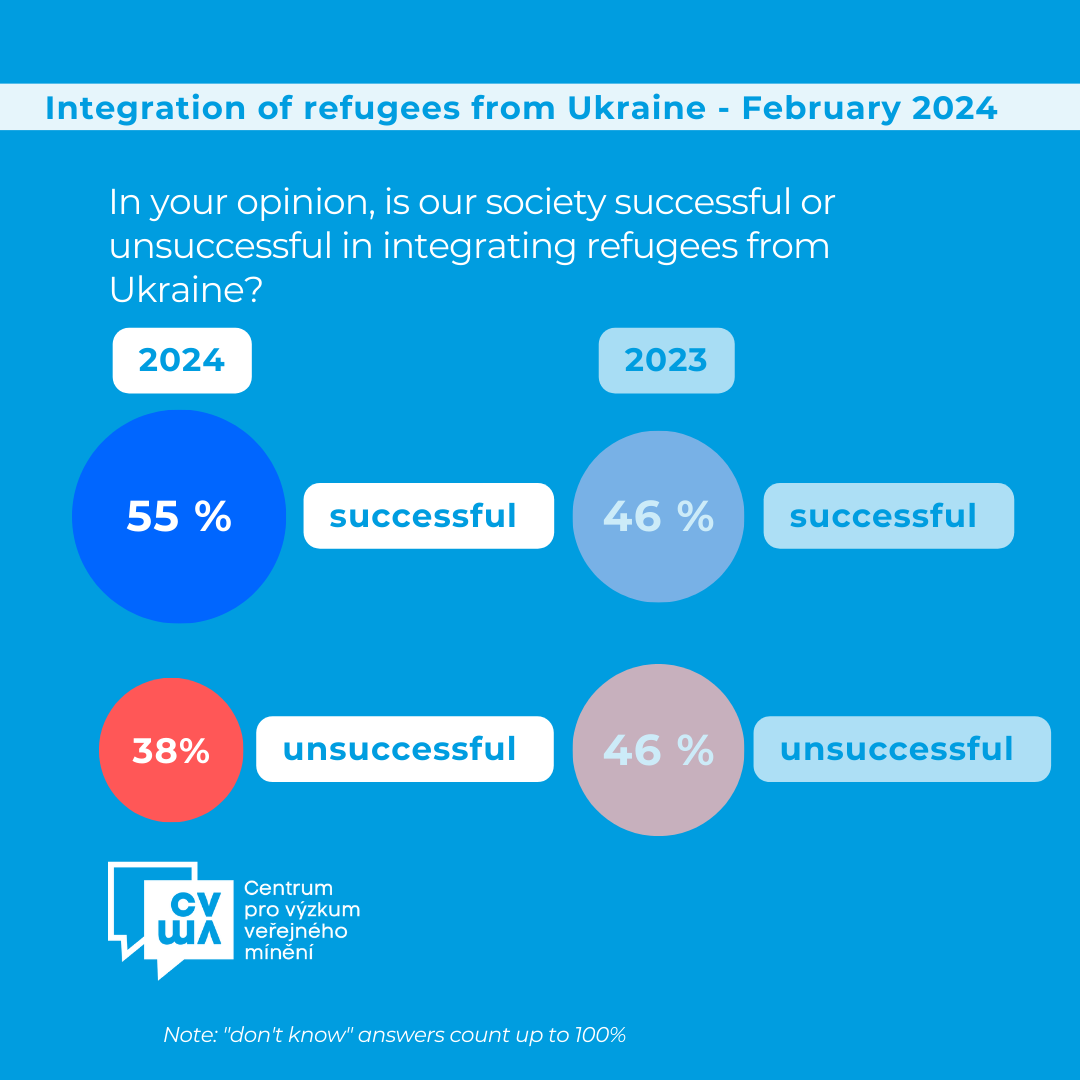During the period from the end of January to the first third of March 2024, the Centre for Public Opinion Research asked a set of questions about the attitudes of the Czech public towards accepting refugees from Ukraine. Specifically, the respondents expressed their attitudes towards the admission of Ukrainian refugees with regard to the possibility of their permanent settlement in the Czech Republic and their opinions on whether or not Ukrainian refugees are successfully integrated into our society and in what kind of contact they have with refugees from Ukraine. The survey also included a mapping of interest in current issues surrounding this situation.
>> Full text is available in Czech only <<
Two-fifths (40%) of Czech citizens are interested in the situation regarding refugees from Ukraine.
Approximately one tenth (11%) of citizens are in favour of the possibility of permanent settlement of Ukrainian refugees here, while another six tenths (60%) prefer only temporary admission followed by return to their country of origin.
The prevailing opinion is that we have taken in more refugees from Ukraine than the country is able to handle (59%), with almost a third (32%) thinking that we have taken in many more refugees and more than a quarter (27%) slightly more than the country is able to handle.
Compared to the 2023 survey, the proportion of people who believe that we are managing to integrate Ukrainian refugees into our society has increased by 9 percentage points to 55% at present.
According to half of the citizens (52%), refugees from Ukraine are a problem in the context of the whole country, but if we focus on the place of residence, only a quarter (24%) of the population considers refugees problematic here.
The vast majority of Czechs (87%) encounter refugees from Ukraine most often in public places. Around a fifth of the population always have refugees among their colleagues, friends or children's classmates.









